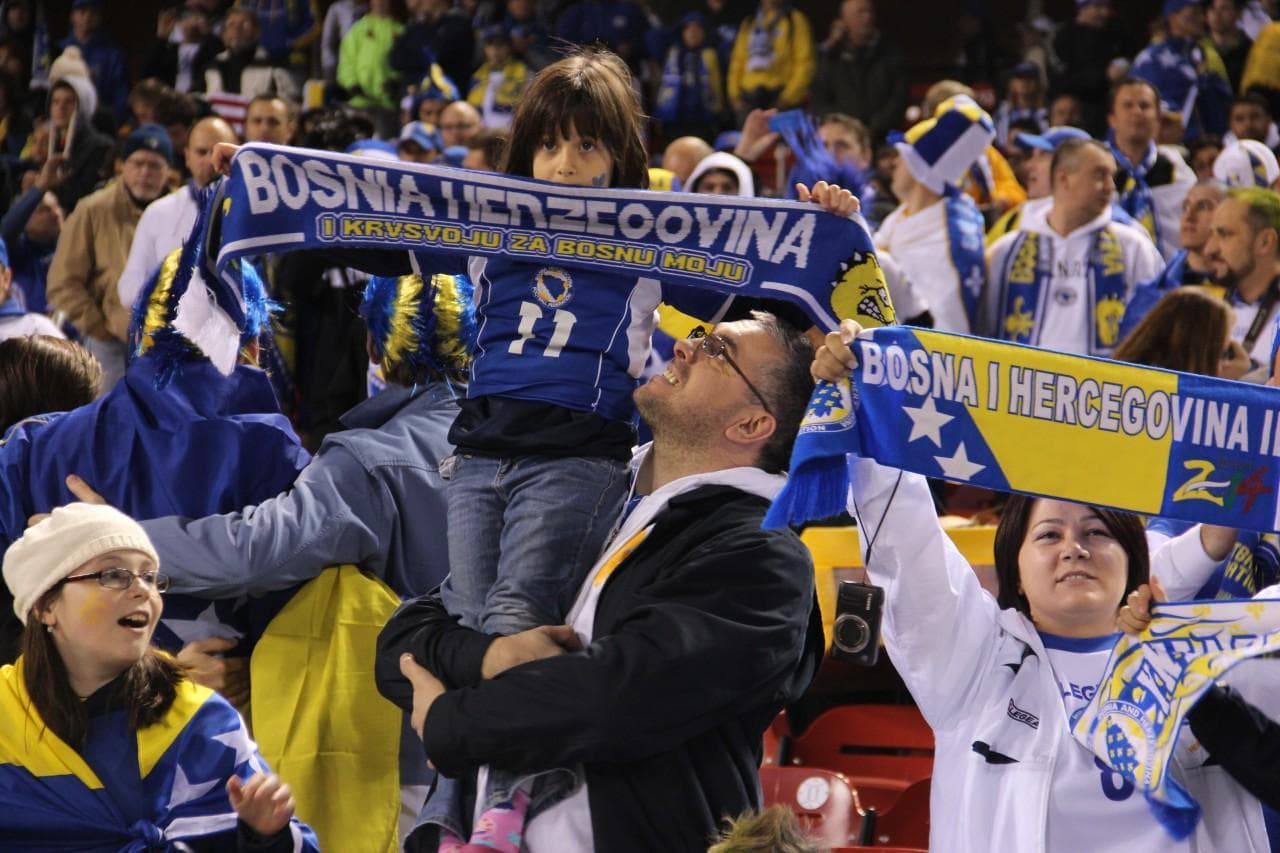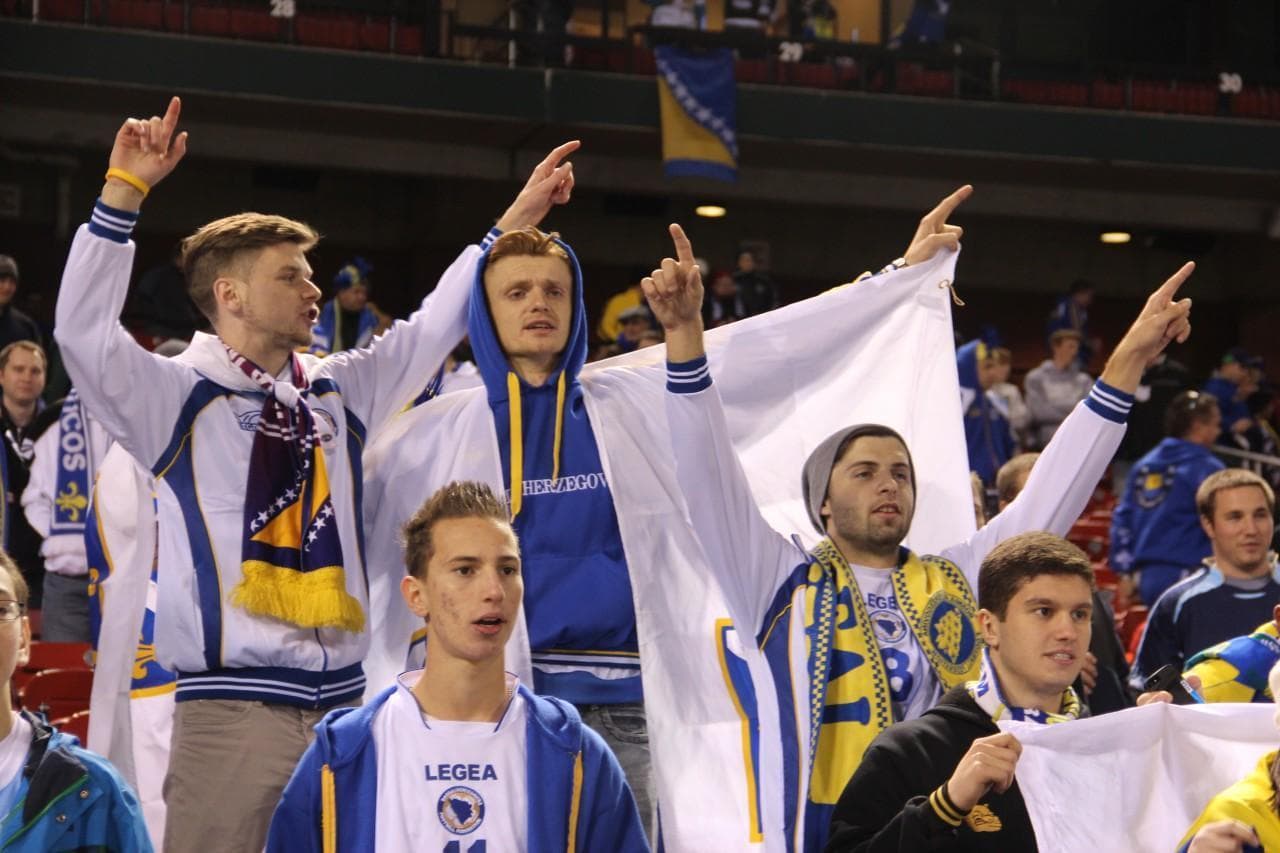Advertisement
Feature
Bosnian National Soccer Team Brings Community Together In St. Louis
Resume
Take a leisurely Sunday afternoon walk through Jefferson Barracks Park in south St. Louis County and you’re likely to happen across a pickup soccer game.
From a distance it’s nothing special.
But it’s the bye week for your favorite football team, and you've got time on your hands so, what the heck, you decide to check out the action.
And as you get closer something starts to stand out: thick Bosnian accents.
Fahrudin Surjic, a 35-year-old factory worker with a shaved head and soul patch, is taking a water break.
“You start playing when you’re basically two, three, four years old," he said. "It’s like eating lunch, you gotta have it, you know?”
Passion for the sport is handed down from generation to generation in the Bosnian community.
Nihad Babic goes to college a couple of hours from here, but tries to make it home for this pickup soccer game as often as he can.
“It’s a tradition," said Babic. "Even my father, he played all his life, he’s in his 50s, and he doesn't want to face the reality that he can’t play. So, he comes out here, plays with us sometimes, [with a] couple of his friends that are about his age, so, it’s a lifelong thing.”
On a recent morning about 12 miles to the north, the St. Louis University soccer team is practicing.
Head coach Mike McGinty says it’s a huge advantage to have so many kids in the team’s backyard growing up with a ball at their feet.
“Any chance you have to tap into that, which we've done, we’re going to look to take advantage of.”
One by one, some of the sons of Bosnian refugees became star players for the university.

Vedad Ibisevic, who a decade ago played his college ball here, scored the only goal in Bosnia-Herzegovina’s World Cup qualifying win over Lithuania last month. It's the first time the nation has qualified for the tournament.
Today a new generation of players is following him.
St. Louis University forward Adnan Gabeljic was born a week after his family fled Bosnia.
He says the entire community is proud of its national team.
“It was just really an indescribable feeling, I think, to be a part of that community, to know that we've finally qualified for the World Cup. It’s the biggest thing that’s happened to us since the war, you know?”
“They are really our heroes. Because there is nothing that makes us happy in last two decades after war stopped in Bosnia beside this national soccer team.”
Sukrija Dzidzovic publishes Sabah, a nationally distributed Bosnian newspaper that’s headquartered in St. Louis.
While bombs, rockets, and snipers destroyed his city, Dzidzovic spent four years under siege in Sarajevo.
The war fueled by once peaceful religious differences that were devolved into almost unspeakable violence slowly melted away the artifacts that made up his life.
Books, records, shoes, anything that could burn ended up in the fireplace to keep his family warm through the long, hard Bosnian winters.
For Dzidzovic, the success of Bosnia-Herzegovina’s team is much more than sport. It’s hope.
“First signal of reconciliation is soccer team, Bosnian soccer team, we have over there in team Serb, Croat, Bosniaks. So, that means that something is going on positively with new generation.”
And on game day that sense of hope and pride and patriotism drew tens of thousands of Bosnians from across the country to Busch Stadium in downtown St. Louis to see Bosnia-Herzegovina national team face Argentina in a friendly.
A pack of 20- and 30-somethings dance around a sound system mounted on the back of a truck.
Muhamed Halavac drove in from Minnesota and has a Bosnian flag draped over his shoulders.
“It’s just awesome," exclaimed Halavac. "Seeing everybody here, everybody’s so happy. Everybody’s hugging. There’s no hate, nothing. It’s amazing, I can’t describe it, I really can’t, you know, dude.”
As Bosnians pack the stands, it starts to feel like a home game.
Every member of Bosnia-Herzegovina’s starting lineup gets a cheer.
And the Argentinian starters are greeted with a chorus of boos.
The game begins and roughly 30,000 Bosnians hoot and holler for every well-placed pass and blocked shot.
But in the end, Bosnia-Herzegovina loses 2-0.
Fans file out of the stadium while a saxophone player riffs on classic American tunes.
Samra Hajric wishes her team had won, but her spirits don’t seem to be dampened too much.
“It’s amazing. It was just great to be around everybody," said Hajric. "I mean, when I see all these people I feel like I’m back home.”
That sentiment was shared by many Bosnians who traveled to the game or hosted friends and family.
For a community fractured by war, a soccer game at a baseball stadium in the middle of America was a chance to feel united.
This segment aired on November 23, 2013.